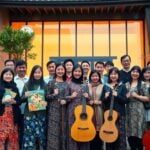Deadline: 31 January 2025
The Grand Challenges Nigeria is inviting grant applications for Maternal & Child Health to identify and support innovative, scalable ideas and interventions that leverage local contexts to address critical challenges in maternal, newborn, and child health, ultimately prioritizing human health and development.
This Request for Proposals (RFP) by Grand Challenges Nigeria (GCNg) aims to drive bold, innovative solutions to improve Maternal, Newborn, and Child Health, thereby accelerating progress toward the Sustainable Development Goals and a healthier future for all Nigerians.
GCNg seeks to identify and support innovative, scalable ideas and interventions that leverage local contexts to address critical challenges in maternal, newborn, and child health, ultimately prioritising human health and development is also being issued alongside the launch.
Funding Information
- The funding level for the Advancing Innovative Solutions for Maternal, Newborn and Child Health Project is a grant of up to NGN 60,000,000 (Sixty Million Naira) for a 12 to 15-month project implementation period. Application budgets should be commensurate with the scope of work proposed.
Eligibility Criteria
- To be eligible for the Grand Challenges Nigeria (GCNg) Funding Opportunity, applicants must meet the following criteria:
- The Lead applicants must be affiliated with a registered organization or institution that has been in existence for more than 2 years. Lead applicants’ organizations must be legally registered to operate in Nigeria and be in good standing with relevant regulatory authorities.
- Eligible organizations include registered non-government/profit organizations, private organizations (excluding sole proprietorships), private and public research institutions, private and public academic institutions, research centres, and social enterprises.
- Individuals with institutional affiliation but who are not applying on behalf of their institution are eligible to apply directly but the project will prioritize funding for institution or organization applications or from a collaborative team or partnership.
- While local and international collaborations are encouraged, the lead applicant (or Principal Investigator) must be Nigerian and affiliated to a Nigerian organization or institution.
- Applicants must have the necessary expertise, resources, team, and infrastructure to successfully implement their proposed project.
- Applicants must have a proven record of accomplishment of working in the thematic area of their submitted proposal and of engaging with relevant stakeholders on the subject.
- The proposed project must be implemented within Nigeria.
- Teams or organizations that have received any Grand Challenges or other funding in the past are eligible to apply, but they must demonstrate how the proposed project differs from the previous work for which they have received funding.
- Applicants must be willing to participate in monitoring, evaluation, learning, dissemination, and amplification activities throughout the project implementation period.
Review Criteria
- The Grand Challenges application review process is executed in four steps:
- The first step consists of screening applications to evaluate whether proposals address the key needs described in the topic. They screen for responses that are completely unrelated or specifically excluded in the topic description. Excluded responses encompass ideas related to the topic but that, for strategic reasons, they are not funding under the Grand Challenges initiative. Applicants with proposals removed from consideration during the screening process will be notified that their proposals were declined but will not receive specific feedback.
- In the second step, reviews are chaired or co-chaired by technical leads from the organization and, in some cases, other funding partners and are conducted by reviewers both outside and within the organization. Reviewers are selected from the world’s leading researchers and comprise both experts in the topic area and experts in complementary areas. Proposals will be evaluated based on criteria such as originality and creativity, innovation, scientific and technical excellence, scalability, potential for impact, and alignment with the thematic areas of focus. Shortlisted applicants may be invited to provide additional information or participate in interviews as part of the evaluation process.
- The third step is the Monitoring and Evaluation review stage: In this phase, their Monitoring and Evaluation consultant assesses the applications that have been scored and chosen by the panel of experts as the most outstanding submissions. The consultant evaluates various features, including the clarity of objectives, Sustainability and Long-Term Impact, Additionally, the consultant examines the applicant’s capacity to effectively implement and manage the proposed project, ensuring that it meets the desired outcomes and contributes to the overall success of the initiative.
- The final selection stage of the proposals: At this stage, the advisory and the Governing Boards of the organization based on their selection will recommend the proposal to be funded, subject to specific modifications which will be negotiated as part of the award process.
For more information, visit Science for Africa Foundation.


























